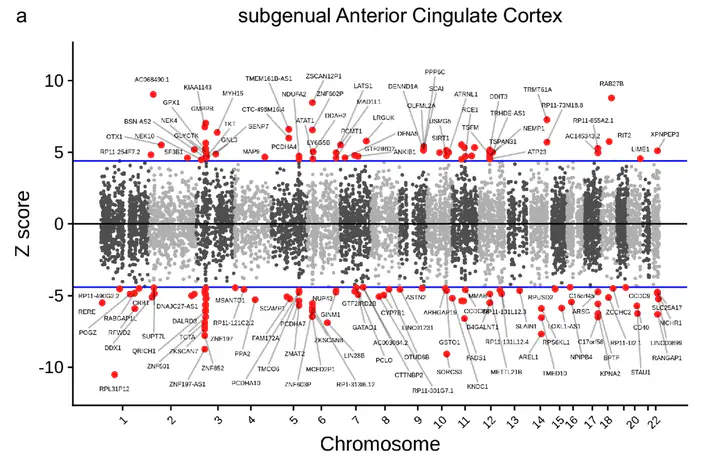Large-scale transcriptomic analyses of major depressive disorder reveal convergent dysregulation of synaptic pathways in excitatory neurons
 Image credit: Nat Commun
Image credit: Nat Commun
Abstract
Major Depressive Disorder (MDD) is a common, complex disorder that is a leading cause of disability worldwide and a significant risk factor for suicide. In this study, we have performed the largest molecular analysis of MDD in postmortem human brains (846 samples across 458 individuals) in the subgenual Anterior Cingulate Cortex (sACC) and the Amygdala, two regions central to mood regulation and the pathophysiology of MDD. We found extensive expression differences, particularly at the level of specific transcripts, with prominent enrichment for genes associated with the vesicular functioning, the postsynaptic density, GTPase signaling, and gene splicing. We find associated transcriptional features in 107 of 243 genome-wide significant loci for MDD and, through integrative analyses, highlight convergence of genetic risk, gene expression, and network-based analyses on dysregulated glutamatergic signaling and synaptic vesicular functioning. Together, these results provide an initial mechanistic understanding of MDD and highlight potential targets for novel drug discovery.